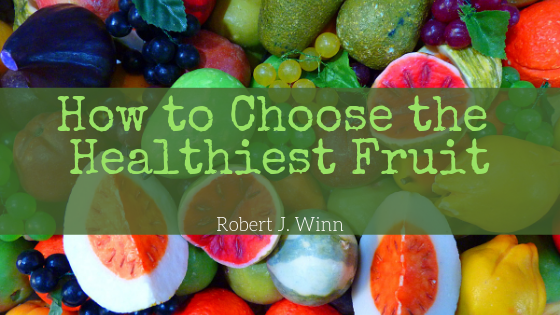While eating a diet filled with fruits and vegetables is one of the best ways to live a healthy lifestyle, there are differences in the nutritional values of fruit. Certain fruits are better to have more of in your diet than others. This doesn’t mean you should stop eating a fruit you love just because it isn’t the best option, but it does mean you should be more mindful about diversifying the fruit in your diet. Follow these four tips to choose the best fruit to be eating.
The deeper the color, the better
When picking fruits, ones with a deep color are your best option. A fruit’s immune system is located in its skin as dark phytonutrient pigments. These phytonutrients help keep the fruit protected from different environmental stressors, such as insects and the sun’s UV rays. The phytonutrients are also what gives fruit their antioxidants and anti-inflammatory properties. When we consume these phytonutrients, it stimulates our immune system’s antioxidant defenses which helps protect against inflammation and premature aging.
The tarter, the better
Certain plants have evolved to have phytonutrients compounds that have a strong, sharp taste to discourage predators from eating them. Having these tart compounds indicates that the fruit has a higher amount of micronutrients and phytonutrients. Think of the tartness of raspberries and pomegranate.
Organic fruit has more antioxidants
On average, organic fruits and vegetables have 20 to 40 percent more antioxidants than their non-organic counterparts. Shopping organically helps to ensure you’re getting the full range of nutrients, even when choosing fruits that aren’t as full of nutrients as others. Plus, you’re avoiding all of the pesticides used to grow the fruit. Because eating organic is expensive, if you can’t afford to replace all of your produce with organic options, focus on the dirty dozen.
Fresh and frozen are both great options
Over time, food loses its nutritional value and fruit is no exception. Because frozen fruit is picked at its peak and then frozen, it sometimes contains even more nutrients than fresh fruit. Frozen fruit tends to be looked down upon because it isn’t seen as a healthy option, but don’t let that keep you from buying them. Frozen is an excellent choice for fruit that isn’t currently in season. Purchasing fresh fruit out of season means there are fewer nutrients because it was picked long before it was ripe to have it shipped to stores.

